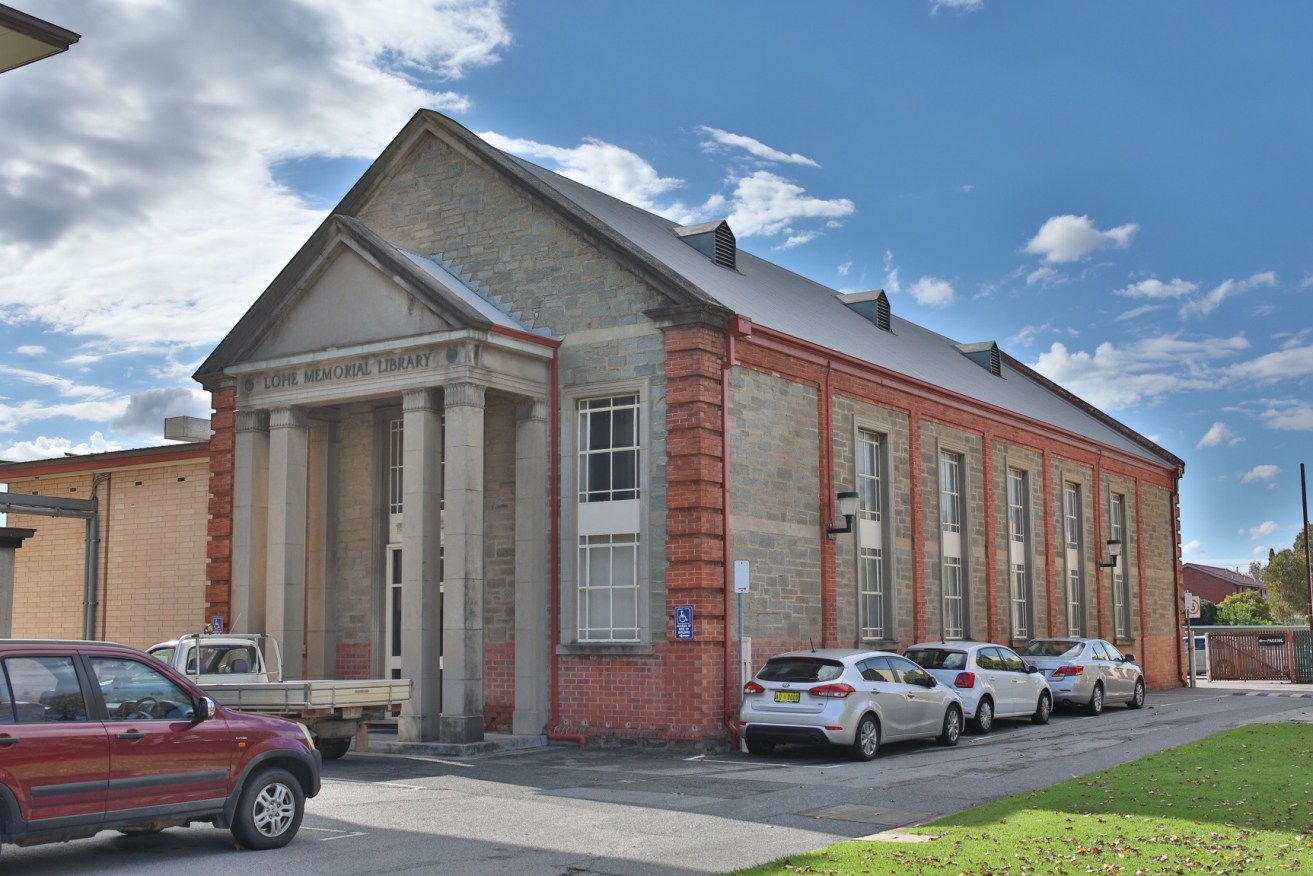Council “shortfalls” to blame for heritage rejection: Planning Commission
Nine buildings in North Adelaide lost heritage status because of “shortfalls” in the city council’s argument for their listing – not because the buildings lack historical value, the Planning Commission says.


Lord Mayor Martin Haese says the decision not to grant heritage listing for the Lohe Memorial Library means it is at the mercy of the Australian Lutheran College, which owns it. Photo: Tony Lewis / InDaily
Two weeks ago, Planning Minister Stephan Knoll accepted advice from the state Planning Commission to deny permanent heritage listing for nine historical buildings on four sites in North Adelaide – a decision Lord Mayor Martin Haese says leaves them completely unprotected from demolition.
Haese told InDaily at the time that the rejection “could irrevocably damage the reputation of this new government” and its commitment to heritage preservation.
But the Planning Commission has hit back, accusing the Adelaide City Council of failing to address shortfalls in its case for the listing “despite (the commission) providing the applicant (the council) with the opportunity to provide further information”.
Heritage advocates claim the Lohe Memorial Library (pictured above) at the Australian Lutheran College, cottages at the Kathleen Lumley College, stables at St Mark’s College and a former mortuary at Calvary Hospital hold irreplaceable historical value for the state.
Haese said he would join fellow North Adelaide heritage advocates in standing in front of bulldozers, if the landowners attempted to knock the buildings down.
But a spokesperson for the Planning Commission said “shortfalls” in the council’s 2016 application for the buildings to gain local heritage status had not been addressed in its re-application.
“In considering the resubmitted nominations, the hearing panel found that these shortfalls in supporting information had not been properly addressed and that the Adelaide City Council failed to sufficiently justify or demonstrate that the places warranted local heritage recognition against the statutory criteria of the Act,” the Planning Commission spokesperson said.
“The panel was unable to recommend listing due to insufficient justification against the criteria, despite providing the applicant (the council) with the opportunity to provide further information.
“The decision does not mean that these properties are without heritage value; rather, that the application received did not fulfil the statutory requirements for listing.”
Panel Member Michael Lennon told InDaily the fact that the council had provided “insufficient evidence” to justify heritage listing was no reflection on the heritage value of the buildings themselves.
“The decision here isn’t about heritage value (but rather) evidence presented to support the listing,” said Lennon.
“In the end, there was simply insufficient evidence.
“This is not a statement of heritage value – it’s a statement of the rigour of the process that we’re required to follow.”
But Haese said the council had no record of being asked for further information on its application, and that it had submitted an independent report verifying that all nine buildings met at least one of the criteria set out in the legislation to justify their local heritage listing.
According to a spokesperson for the city council, it was never given an opportunity to provide more evidence to the committee.
The application for heritage status was made in the form of a development plan amendment.
“On Friday, 25 May 2018, the Minister for Planning wrote to council advising he is refusing the DPA,” the spokesperson said.
“This outlined that council had not provided adequate evidence.
“However, it is noted that the commission and the Department of Transport, Planning and Infrastructure had not outlined this to council prior to making a recommendation to the Minister for Planning.”
The spokesperson said the council “was not given the opportunity to provide this information”.
“Council only received this information on Wednesday May 30, 2018, after the decision had been made.”
Lennon also said that the council had failed to demonstrate the individual worth of some buildings, attempting instead to argue that a series of buildings was historically valuable as a group.

Michael Lennon. Image: Planning Commission website.
“You have to draw the argument around (the value of) that particular building,” he said.
“What is distinctive about that building? … the evidence that we had didn’t provide that.”
But Haese said the council’s heritage argument for the cottages along Finniss Street – that they, or at least their historic frontages, formed part of the overall streetscape – was neither unprecedented nor inconsistent with the requirements of the law.
Lennon said alterations to the Lohe Memorial Library over the years were part of the reason it did not meet the criteria to be heritage-listed.
He said porticos on the building did not match its original architectural style.
“That building has been varied dramatically at different points of its history,” he said.
“(And) there was nothing to demonstrate how that building was different from other buildings … in other parts of the area.”
However, Haese told InDaily the building had both historical and architectural significance for North Adelaide, that alterations were minor and that they could be easily reversed.
Lennon stressed that the rejection of heritage status did not amount to a right to demolish.
“Do not assume that that is a right to demolish,” he said.
“It’s far from open slather for anybody.”
He said it would be up to the owners to decide what to do with the buildings, but that the buildings retained some protection because they are situated within the North Adelaide Historical Conservation Zone.
“They will make their individual decisions (but) they have to address the requirements of the historical conservation zone.”
But Haese disagreed.
Haese explained that the development plan amendment that would have given the buildings heritage status was a quid pro quo with former minister John Rau to secure the council’s endorsement of the North Adelaide Large Institutions and Colleges DPA.
Without the heritage DPA, he said, the latter DPA effectively extracted the nine buildings from the North Adelaide Historical Conservation Zone.
So the future of those buildings was now entirely down to the “good graces” of the landowners, he argued.
“My understanding is that it (the conservation zone) affords zero protection because those buildings are … extracted from (its) heritage provisions,” he said.
In a separate, but related issue, Haese said the council had been “shocked” to discover, after the Large Institutions and Colleges DPA was gazetted, that it would allow the colleges and large institutions to apply that DPA’s more relaxed development rules to adjoining properties.
He said Knoll had now committed to working with the council to fix the loophole.
The council spokesperson said: “We hope to work with the Minister for Planning and the State Planning Commission to ensure the heritage process and the development plan amendment processes are reformed to enable a transparent and robust decision-making.”
Haese added that he would appeal to the Environment, Resources and Development Committee of State Parliament to review the heritage listing rejection.
That committee advises the Planning Minister but does not have the power to overturn ministerial decisions.




